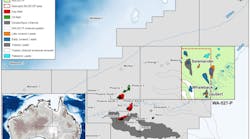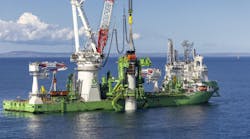Offshore staff
CORPUS CHRISTI, Texas – The Gulf of Mexico remains resilient five years after the explosion of the Deepwater Horizon and the resulting hydrocarbons release, reports the Harte Research Institute for Gulf of Mexico Studies at Texas A&M University-Corpus Christi.
Many of the Gulf’s most iconic species, like crabs, shrimp and oysters, have shown no lasting effects from the spill, say researchers in the report, but factors other than just the oil spill can affect the GoM. Studies on longer life marine animal remain to be seen, as well.
HRI was recently named as the lead organization of one of Texas’ two research Centers of Excellence, funded by oil spill fines set aside by the federal RESTORE Act. Created to serve as a hub of study into the effects of man-made and natural disasters to help guide future science and restoration efforts, the Texas OneGulf Center of Excellence will join similar efforts in Louisiana, Mississippi, Alabama, and Florida.
The center’s goals include creating a network of academic experts that can be called upon to respond to future Gulf-related disasters, such as oil spills or hurricanes, to ensure the best science is available for the emergency response and long-term research.
04/15/2015




